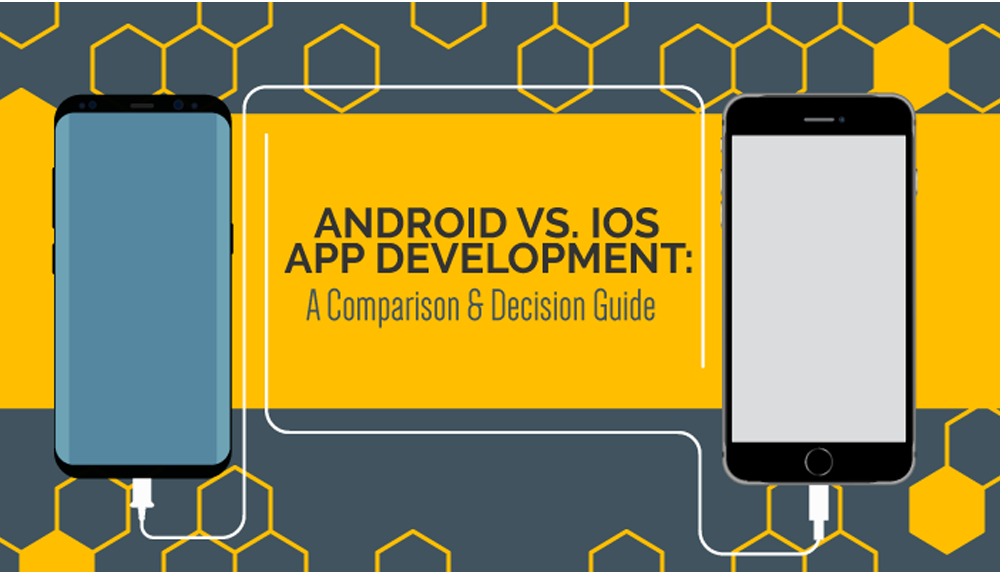Do you know that there are up to 5 billion mobile users globally? And because you cannot ignore the mobile market, there has been a proliferation of Android vs iOS app development tools over the years.If your business doesn’t have a mobile app, it is high time you develop one, to enable you to tap into the flourishing mobile app market.
However, even before you begin to consider this step, you will be confronted with the Android vs iOS development dilemma. Which platform should you even focus on, especially for your project?
In this post, the Android vs iOS app development tools comparison will help you make an informed decision as regards which of these platforms you should opt for.
Android vs iOS Development – Comparison
You may be wondering, “Which of these platforms will better suit your business idea?”. Well, to provide the best answers, let’s do some Android and iOS development comparisons.
Demographics
There is a lot in terms of iOS and Android user data and insights when it has to do with demographics. Currently, Android holds the most significant – and most used – global platform share. The market share arises from developing countries as well as lower-income areas.
Studies show that a majority of iOS users have an incredibly high level of education, are very young, and foster greater engagement. Many iOS users are also good earners, enabling them to spend more per application – than Android users.
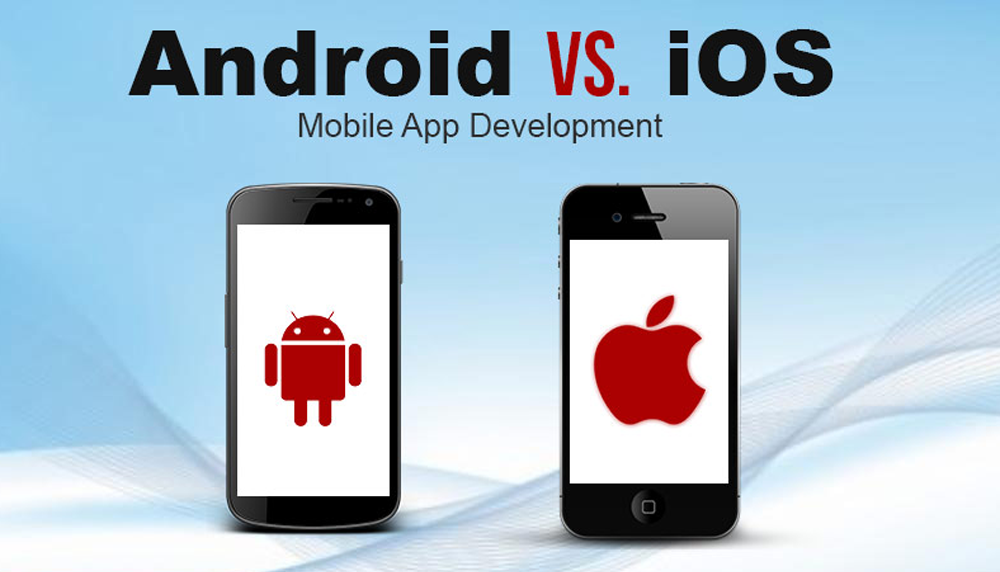
Based on demographics and statistics, you need to look at your target audience, their income levels and their most used operating systems and devices. Ask yourself, ‘What is my target audience?” or who are the people I would like to reach?’
When you know your target audience, it will enable you to focus primarily on the development requirements you need. This could even help you save some money in the long run.
Check out the following iOS vs Android development comparison statistics:
| Android users | iPhone users |
| Users are likely to be male, 34 years or younger | 29% are likely to be older females, 35+ years |
| 80% are more likely to have a high school diploma | 37% are highly likely to possess a graduate degree |
| 12% are much more likely to be introverts | 14% are much more likely to be extroverts |
| 12% likely love pets | 39% are high-maintenance |
| 71% may never have travelled abroad | 50% may have visited at least 5 countries |
| 24% more likely to earn $100,000 or less | 67% more likely to earn more than $200,000 |
| More likely to be in Utilities/IT/Energy | More likely to be in Marketing/Media/Business |
Development Cost
As you consider which to go for, (between Android vs iOS app development) be aware that the prices will differ. Mobile app development for Android attracts higher costs than iOS app development.
Statistics show that the Android operating system powers most of the devices out there, which also means that it has better chances of wider adoption and compatibility. This simple fact significantly increases development time and costs as well.
But then, it is no news that iOS has a minimal number of devices which also accelerates or speeds up the mobile app development process. Nevertheless, Android vs iOS development costs depend on app complexity as well as the number of features and functionalities.
- Some medium-complexity mobile applications with third-party integrations may cost from $30,000 upwards. The mobile application could take up to 3 months to develop.
-
Android or iOS development with basic features costs from $5,000 upwards and may take up to 2 or 3 months to build.
- Complex mobile apps like booking apps or social networks with API integrations and databases may cost from $50,000 upwards. It could also take up to 5 months to build from scratch.
In the iOS vs Android development comparison, both the App Store and Google Play Store have their respective fees for publishing mobile applications.
When it comes to Android mobile apps, you will be required to pay a one-time registration fee of at least $25. But to publish your mobile app at the App Store, you will be mandated to pay up to $99 per annum.
Updates
iOS development updates once a year at the very least. Therefore, you need to consider the simple fact that updating iOS applications for the new OS release can take up to 2 weeks. And this could significantly impact both your product roadmap as well as your business strategy.
But as for Android, it will only take a few hours to publish the new application release.
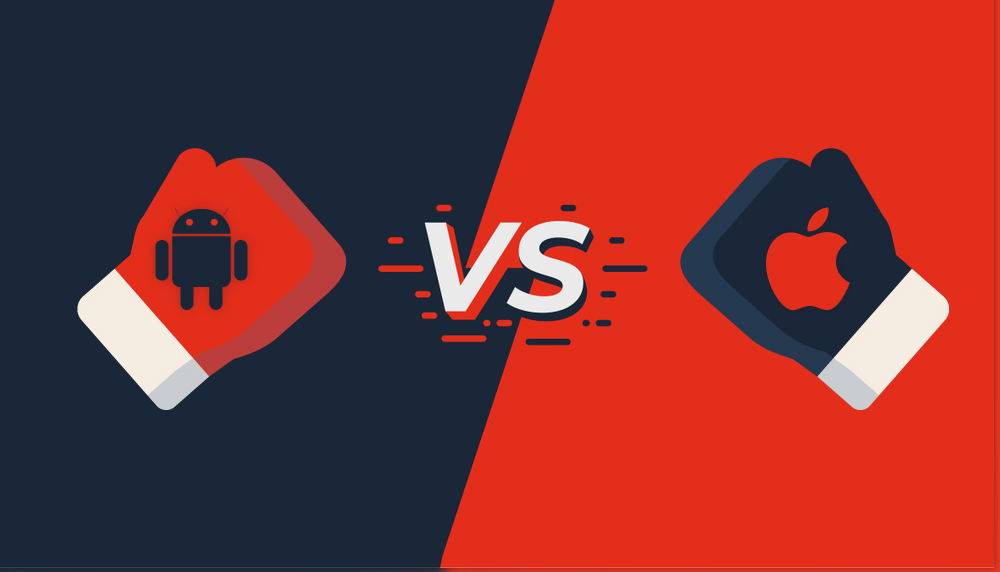
Testing
Android and iOS have their respective simulators when it comes to app testing. However, there are a few differences between these simulators.
On the one hand, TestFlight – which is the iOS testing environment – is much faster than the Android emulator. But on the other hand, the Android emulator virtual machine is much more effective. Android also has a far more realistic representation than its counterpart.
Engagement
When you consider Android vs iOS development, you need to look at the important ifs and if not. For example, would you prefer having lots of users that rarely engage each other or having fewer users but with an incredibly high amount of engagement?
The choice you go for depends hugely on how you decide to monetize the mobile application. Android has a much broader audience compared to iOS, though the latter has more engaged users.
Monetization
The monetization strategy you have in mind plays a significant role in determining the app development platform you should go for or develop first. Each operating system lends itself remarkably well to opposing monetization tactics.
From a revenue standpoint, it is not news that iOS mobile apps make more money than Android applications. For instance, according to research, the App Store generated up to 88% more revenue than the Google Play Store.
So, if you plan to monetize your mobile application via in-app purchases or a subscription model, iOS is the best and most lucrative platform to opt for.
However, Android applications can be successfully monetized via an ad-based model.
Android vs iOS Development: Advantages and Disadvantages
Developing Android Apps
To develop Android applications, most developers need to be proficient in Kotlin, Java, and C++ programming languages. Moreover, Android app developers also make use of the following innovative yet advanced Google app development tools:
- Firebase: Firebase is a comprehensive mobile app development platform.
- Android Jetpack: Android Jetpack is a set of pre-built Android components.
- Android SDK: Android SDK is a development kit that is connected with Android Studio as well as an integrated development environment.
Let’s consider the pros and cons of Android app development:
Pros
- Fragmentation: Some people consider this a disadvantage. But the truth is that fragmentation allows you to develop mobile applications for a wide variety of devices including TVs, wearables, in-car systems, etc.
- Open system: Android developers get access to more features that are generally restricted in iOS applications.
- Design: Android developers make use of or follow extensive Google design guidelines for the development of intuitive user interfaces.
- Release: Publishing Android apps to Google Play is far easier in comparison to iOS. The entire process takes only a few hours.
Cons
- Testing: Android versions, as well as devices, may vary. This means it takes much more time for QA professionals to test the application.
- Fragmentation: Fragmentation, as mentioned earlier, is considered a drawback for Android. These days, Android devices come in a wide range of screen size resolutions, etc.
The Android development team may need a bit more time to modify the mobile app’s features for specific devices.
- Costly: The more time the Android development and testing stage takes, the higher will be the price of the application. However, this depends significantly on the complexity and features of the mobile application.
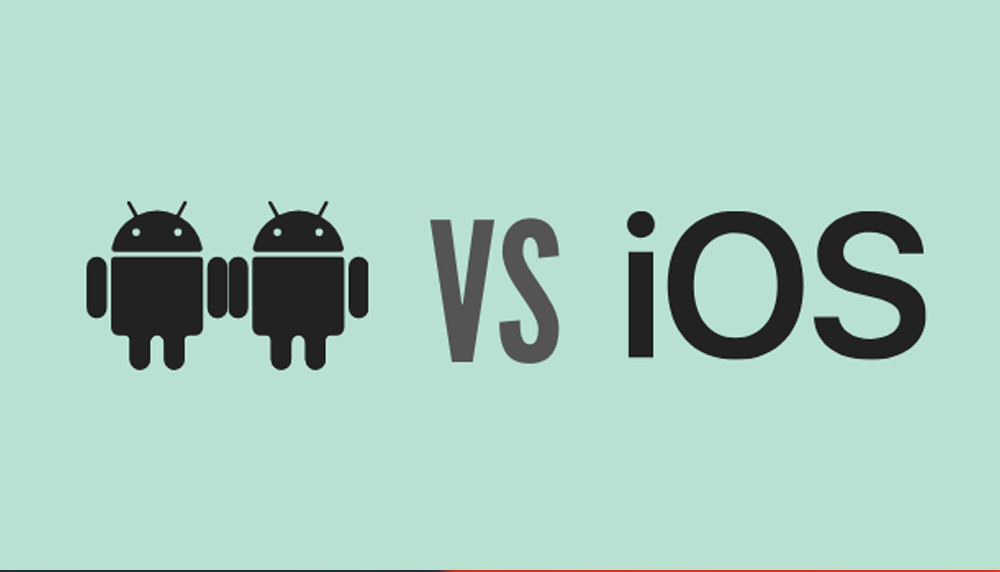
Developing iOS mobile apps
Although Android has an open-source code, iOS, on the other hand, has a closed-source code. This implies that iOS can only work on devices manufactured by Apple. The development team might use Objective-C or Swift.
Other iOS development tools include:
- Swift Playgrounds: This is a development environment for Swift.
- XCode: This is the official IDE (integrated development environment) for iOS application development.
- iOS Software Development Kit (SDK): This is integrated with the Cocoa Touch user interface framework. The framework provides user interface controls, graphical elements, etc.
- TestFlight: This is an online service for testing and over-the-are installation. It is an online service that users can utilize to test your mobile applications and obtain valuable information or data before the application is released.
Pros
- UI design: Apple provides iOS developers with a highly detailed style guide for the application user interface. The team needs far less time in comparison to Android app development. This makes iOS app development much more affordable in the app design stage.
- The number of devices: As mentioned earlier, iOS only powers Apple devices. And as a result, your mobile application should only fit a specific number of devices and screens.
- Revenue: As you may have guessed, Apple users tend to spend much more money on purchasing mobile applications compared to Android mobile app users.
Cons
- Flexibility: It is generally difficult – or almost impossible – to customize iOS applications since the platform has so many restrictions.
- App release: It must be mentioned that the App Store has several strict review guidelines. This implies that the App Store could reject your mobile application as a result of a lack of valuable content, security issues or even poor performance.
Moreover, the developer should only submit your mobile app for real-world testing, and this could take more than a few days.
Key Aspects of Android and iOS development
| Key aspects | iOS-based platform | Android-based platform |
| Development language | Swift | Java, Kotlin |
| Target audience | Much more valuable | Less valuable |
| Integrated development environment | XCode | Android Studio |
| Design philosophy | Incredibly flexible | Specified requirement |
| Development complexity | Middle | High |
| Development time | Depends primarily on the complexity | Depends on complexity |
| Deployment speed | 7 days (on average) | 7 days (on average) |
| App store acceptance | Long app review | Short app reviews |
So, after checking out Android and iOS development, which is better to opt for? Judging from the statistics, it is far easier to start developing mobile apps for iOS since they earn a lot more. Moreover, the cost of mobile application development is lower, thanks to the availability of app development tools.
If you are a startup with a limited budget, then it is best to start with iOS development. What is more, not only is iOS app development cheaper, but it also brings PR and even influencers along with it.
You will end up getting many more clicks for a mobile application built on iOS. This is why iOS app development is far better than Android app development.
But if your target audience is from new or emerging markets, it makes a lot of sense to start with Android app development because they tend to visit mobile application stores even more often.
And when the time comes to move onto another app development platform? Well, change is constant, and growth is the #1 reason for moving onto a new segment of your target audience.
As soon as you have hit critical mass or exhausted one platform, you can start targeting the region of the other platform. This will significantly increase the total number of users.
As you consider Android vs. iOS development, you should not forget to consider the pros and cons of both platforms. Of course, your choice should be based on your business idea, budget, time to market, as well as other factors, and not only the app development tools involved.
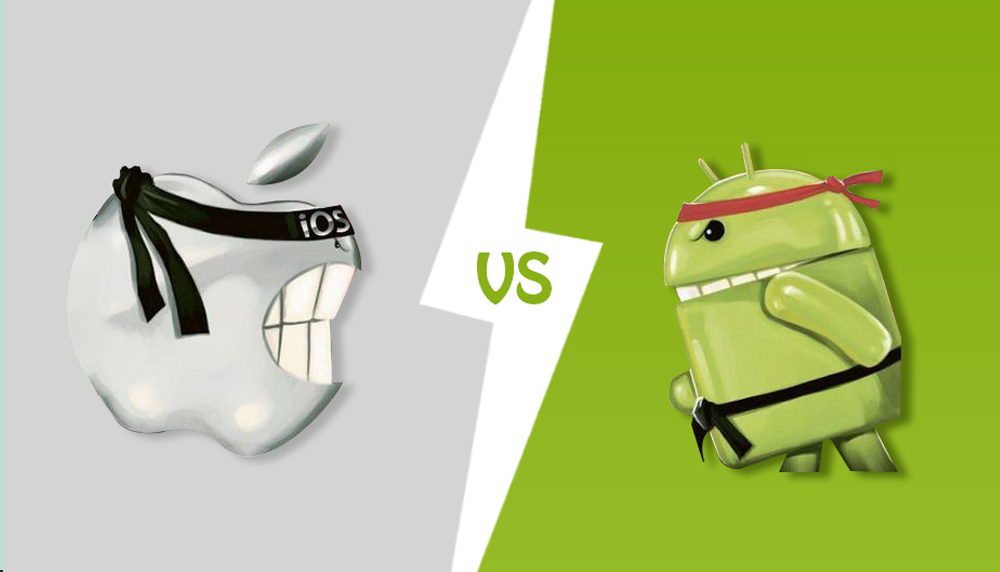
The Best Pick Between Android and iOS Development
You should opt for iOS development for the following reasons:
- To generate much higher revenue for each user
- To make privacy and user data security your priorities
- For a far less complicated app development process
However, this is not to discredit Android app development and associated app development tools. Android can be an excellent choice for the following reasons:
- Having access to a much wider target audience
- Customizing the mobile application
- Less waiting time or time to market or the App Store
Now that you have made up your mind after going through this mobile app development android and ios article, the next hurdle to cross is the hiring of a reputable mobile app development company to execute.
